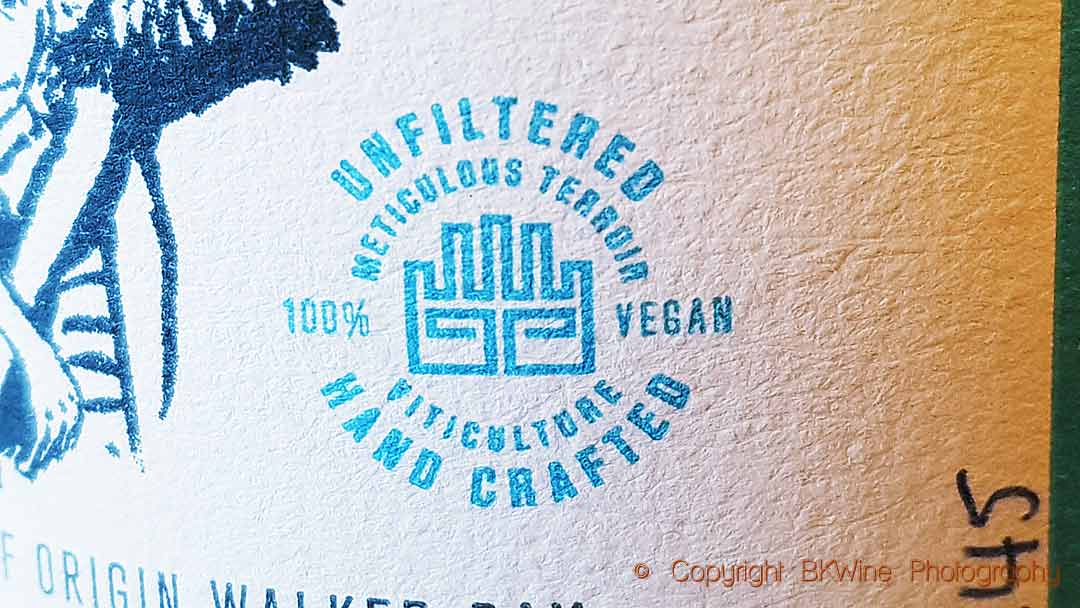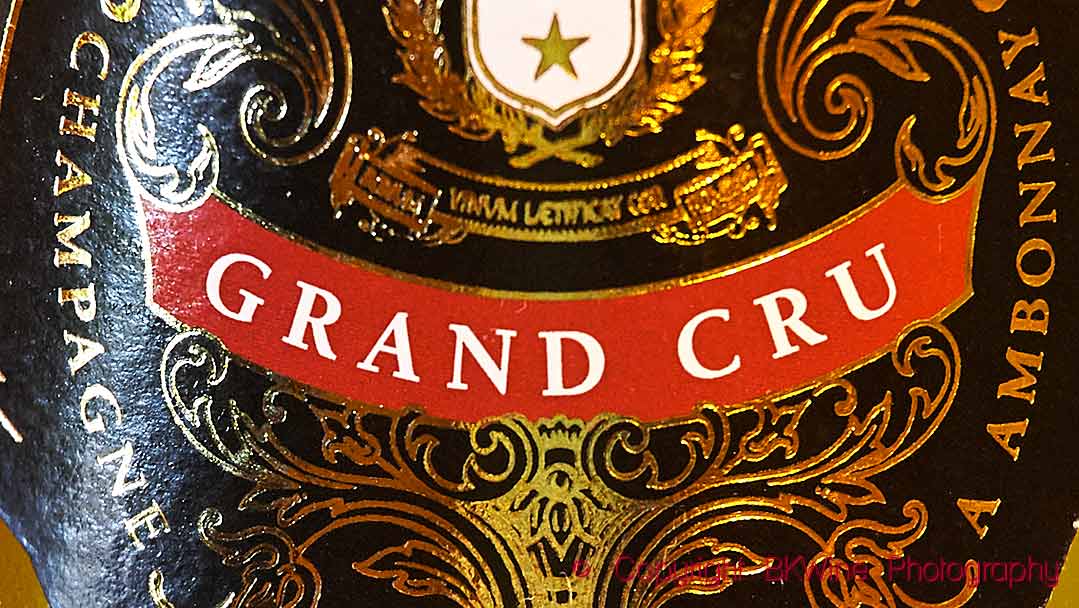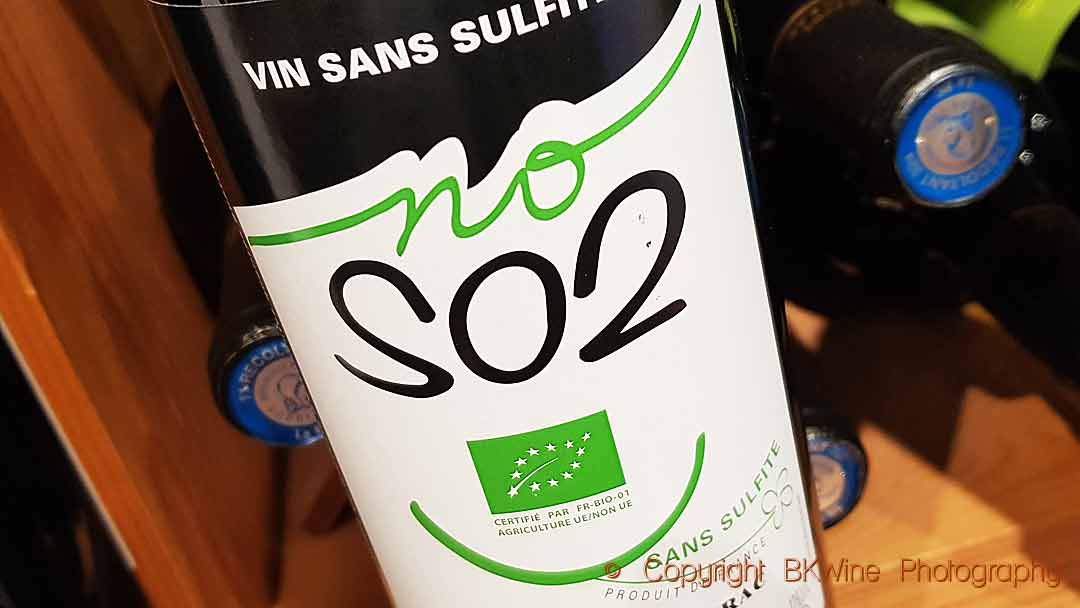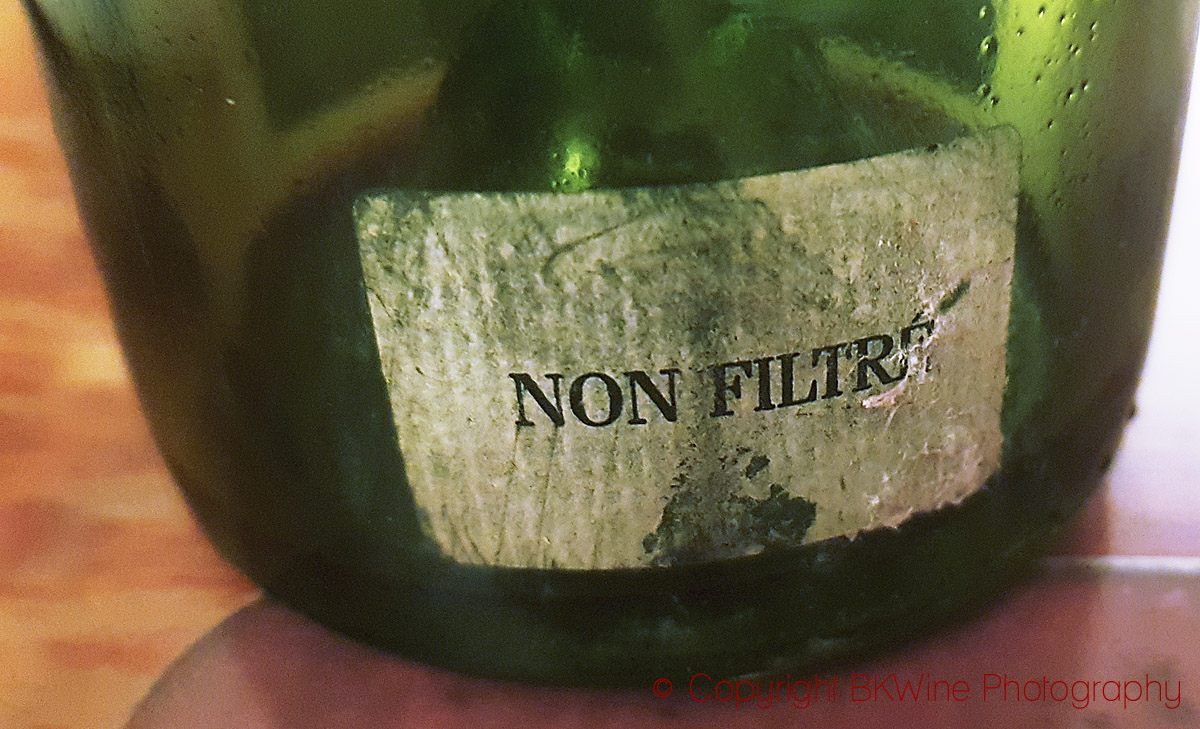
The other month, we wrote in the Brief about rules and regulations in the wine industry. The other day, I had reason to ponder this subject again when discussing how to interpret a wine label at a tasting I led. Sometimes, according to the group, a wine label is difficult to understand.
At times, there are indeed a lot of words sprinkled on the label. What do they all mean? Some mentions are mandatory. Some are voluntary. But you cannot lie. If, in France, it is written that the wine is unfiltered or without added sulphur, it must be so. If it is mentioned that the wine is aged in oak (“élevé en fût de chêne/barrique”), at least 50% of the wine must have been aged in oak barrels of any size for at least six months.
Some people still believe you cannot put the grape variety on French wine labels; we even heard it on a wine podcast the other day. We tell you now, once and for all: you can put the grape name on a French wine label. This applies to all French wines in all categories, even “vin de france” (what used to be called “vin de table”), wine without origin. That some regions or producers choose not to do it, preferring to emphasise the origin, is another story.
It is up to the wine producer to judge the truth value of some things. You can write “old vines”, “vieilles vignes” etc. on the label. It is not regulated by law when a vine is considered old. We can understand why because how old vines get varies between regions and countries. What is considered an old vine in one place is regarded as a youthful one in another. How old a vine gets depends on climate, weather, yield, diseases, etc. But still, it provides information, and for many wines, one can assume that pretty old vines have been used (at least more than 35 years). Whether it matters for the quality of the wine is another matter. That is not necessarily the case, although there has been a lot of campaigning recently for just that.
Then there are the words that mean something in some countries but not others. Now and then, we come across a Champagne Cuvée Réserve. What does “réserve” mean? Maybe this particular cuvée is specially selected, or the word is just used as a marketing ploy. The word réserve has no legal meaning in France and many other countries. But in most Italian and Spanish regions, “riserva” and “reserva” are strictly regulated terms and mean that the wine has been aged for a certain period before sale. It is the same with words such as “cuvée prestige”, “icon”, “family reserve”, and so on; it sounds nice, but it does not have to mean much more than that it is a little better than usual.
It is trendy today to talk about high-altitude viticulture. Sometimes, it is combined with the expression “heroic viticulture”. Ouch. There is no clear and unambiguous rule here either (thank goodness?). When you see it used for cultivations at 150-600 meters (Chianti) or 400 meters (Stellenbosch), you can wonder if the starting point is Møllehøj, Denmark’s highest mountain at 170 m. No doubt, it sounds more reasonable with the 1000 meters you have in Mendoza or 1200 m in Aosta. Imagine how nice it would be with a height rule. Or not? Maybe it is up to us consumers to be a bit critical!
Not to mention the super trendy term “volcanic wines”. Today, almost every wine district is fighting to put it on the label. But the fact is that many types of soil are volcanic. Both granite and basalt are of volcanic origin. Do the wines taste different? Certainly. Is it because the soil is volcanic? Doubtful.
In such discussions, “natural wine” always comes up, a word that has been controversial since its introduction. It is admittedly rarely seen on the labels. In France, it is forbidden to call the wine “natural wine” (all wine is considered natural). But these wines are being talked about all the more. Some believe we need official legislation for the word to be meaningful.
Do we really need official regulations for natural wine? The EU has adopted rules on organic but will probably never legislate on natural wine. Having an official organic certification is different. As the EU sees it, organic farming provides environmental benefits and fits into the EU’s larger environmental plans. Furthermore, the difference between conventional and organic is easy to understand and impossible to misunderstand, thus ideal for a legislator. Natural wine is, first and foremost, about a specific type of vinification, often linked to a certain kind of philosophy and even political attitude in many cases. It’s not as clear-cut and guaranteed to give legislators grey hairs.
(Some private associations have set up their own private rules for what they mean by “natural wine”, just like the private associations that have rules for biodynamic, also not “official”. But that is another matter. If you want to understand natural wine, you can read our rather detailed article here, which also kills quite a few myths, inaccuracies and mistakes that are spread in the media about it.)
So, no, we can manage well without laws and regulations about natural wine and many other things that are used to attract customers to the wine.
Well…
It has been an autumn filled with many wine tours. I haven’t counted exactly how many, but it would be interesting to make a list. But it’s not quite over yet.
Britt is off to Catalonia soon, to attend a major cava conference, a very underrated sparkling wine. They need to work on their reputation. Maybe we’ll organise another wine tour to Catalonia in the fall. Wouldn’t that be fun?
Per, on the other hand, has just been exploring another potentially new destination. Last week he was in Andalusia and visited both Jerez de la Frontera and Sanlùcar de Barrameda, the two “sherry towns”. In weather that was like a really good summer further north. Wouldn’t you also fancy a trip to the sherry district?
But before that we have the winter and autumn trips.
The best Christmas present
With all our travels, it’s hard to believe that it’s soon Christmas, but it is. If you’re looking for a Christmas present that is absolutely fantastic and will be a memory for life, take a look at our two winter tours:
- South Africa in February
- New Zealand in March
You can still book a seat or two on these very special trips. Just imagine what effect a small envelope under the Christmas tree with a gift card for one of these would have!
So treat yourself to something truly special this winter, join us on the wine tour to South Africa in February or the wine tour to New Zealand in March!
Autumn tours
The autumn tours to Bordeaux and Champagne in 2024 are underway. And maybe some others. (Rhone and Burgundy? What would you like?) More info coming soon.
More info on our wine tours here. “World’s Top Wine Tours“. Tours with the people who know wine and who have an unrivalled experience of wine and tours.
Travel in wine regions with someone you trust.
Enjoy the Brief!
Britt & Per
If you appreciate what we do, you can help us: Tell your friends about the Brief or send it to them.
Like us and follow us on social media:
BKWine Magazine on Facebook | Wine Tours on Facebook
Twitter | Instagram | Linkedin | YouTube
This is just the introduction to the latest issue of the Brief. Subscribe to the BKWine Brief and you will get the whole edition in your mailbox next month.
What’s on at BKWine Tours
BKWine is also one of the world’s leading wine tour operators. Here’s what we currently have on our scheduled wine tour program:
–
- Chile-Argentina, 15-28 January 2024
- South Africa, 8-18 February 2024
- New Zealand, 12-27 March 2024
–
- Champagne, September, dates TBC
- Bordeaux and Champagne, Sept – Oct, dates TBC
- Bordeaux, October, dates TBC
We also make custom designed wine tours.
We’re different than most other wine tour operators. We are people who know wine inside out, who travel constantly in wine regions, who write award winning books about wine. Who do this out of passion. Our tours are different from others. More in wine tours: BKWineTours.com.
















